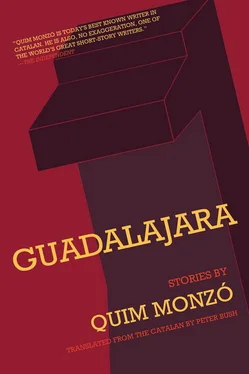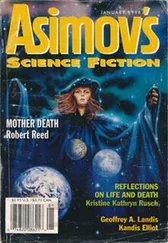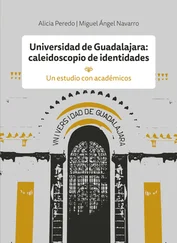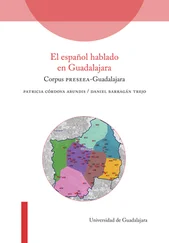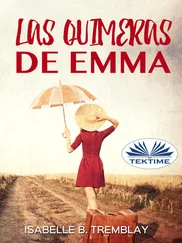Quim Monzó - Guadalajara
Здесь есть возможность читать онлайн «Quim Monzó - Guadalajara» весь текст электронной книги совершенно бесплатно (целиком полную версию без сокращений). В некоторых случаях можно слушать аудио, скачать через торрент в формате fb2 и присутствует краткое содержание. Год выпуска: 2011, Издательство: Open Letter, Жанр: Современная проза, на английском языке. Описание произведения, (предисловие) а так же отзывы посетителей доступны на портале библиотеки ЛибКат.
- Название:Guadalajara
- Автор:
- Издательство:Open Letter
- Жанр:
- Год:2011
- ISBN:нет данных
- Рейтинг книги:3 / 5. Голосов: 1
-
Избранное:Добавить в избранное
- Отзывы:
-
Ваша оценка:
- 60
- 1
- 2
- 3
- 4
- 5
Guadalajara: краткое содержание, описание и аннотация
Предлагаем к чтению аннотацию, описание, краткое содержание или предисловие (зависит от того, что написал сам автор книги «Guadalajara»). Если вы не нашли необходимую информацию о книге — напишите в комментариях, мы постараемся отыскать её.
Guadalajara — читать онлайн бесплатно полную книгу (весь текст) целиком
Ниже представлен текст книги, разбитый по страницам. Система сохранения места последней прочитанной страницы, позволяет с удобством читать онлайн бесплатно книгу «Guadalajara», без необходимости каждый раз заново искать на чём Вы остановились. Поставьте закладку, и сможете в любой момент перейти на страницу, на которой закончили чтение.
Интервал:
Закладка:
Where should he begin? The solution might be to begin them all at once, as he often does. Not simultaneously, of course: but going from one to another, just as you never watch six TV channels at the same time but flick from one to another. Obviously there must always be a book he opens first where he reads a paragraph, a story, a chapter, twenty percent of the pages before moving on to the next. The problem is not knowing where to start. He gets up and lights a cigarette. Why is lighting up a solution when one doesn’t know what to do? Lighting up shows we are thinking something through, are meditating intensely, are remembering, are waiting for someone (every so often we will draw back the curtain and look down the street) or are losing patience (in a maternity hospital waiting-room, its floor covered in cigarette butts). One enjoys a post-coital cigarette; one lights a cigarette to extinguish it in the groin of a masochist lover and increase their arousal. One lights a cigarette in search of inspiration, because the nicotine helps to stop us from dozing off, or so we don’t eat when we are hungry and can’t or don’t want to. The passionate reader has one last drag and goes back to the table. The four books are there and, next to them, the plastic bag bearing the bookshop’s red logo. Night falls; a car drives by; a radio blasts out. Do you hear a lot of radios in novels? If the four books were to disappear all of a sudden, his problem would disappear with them: where to begin? He picks up the novel by the American. He opens it to the first page. He sticks his finger forcefully between the two leaves, to keep it open, and reads: “At the very moment the nurse pulls the sheet up to cover his face, the dead man opens his eyes and whispers incoherently. The nurse screams, drops the sheet, says the patient’s name, and takes his pulse. She runs out to find the doctor. ‘Doctor, the patient in 114 isn’t dead!’ ‘What do you mean, he’s not dead?’ ‘He’s not dead. He opened his eyes. I took his pulse . . .’ The doctor tries to hide the unease that this piece of news provokes in him.”
The reader closes the book. The first sentence, the first paragraph, the first page. The possibilities are immense, as ever. Everything still has to fan out, gradually, as the paths at the beginning fade until finally (that is, on the final page) only one remains, that is generally predictable. Will the writer keep us entranced to the last page? Won’t there ever be a time, from here to the fifth, eighteenth, or one-hundred-and-sixty-seventh page when his spell will be broken. But a narrative is never as good as the possibilities that fan out at the beginning. Anyway, it’s not about the reader foreseeing every possible development and improving on the ones offered by the author. No way. How would he continue the story of the man reading the newspaper in the lobby of the Ambassade Hotel who doesn’t react when they shout out his name? It is that moment of indecision, when the chips are down, that attracts him. The exposition vaguely reminds him of that Hitchcock film when Cary Grant is mistaken for another man in a hotel lobby. But he’s not interested in taking that thought further. To write the next scene, whatever that might be, would open the way to imperfection.
Writers err when they develop their initial expositions. They shouldn’t. They should systematically set out their opening gambits and abandon them at the most enthralling point. Isn’t that so with everything? Of course it is! Not only in books, but also in films or plays. Or politics. If you are ingenuous enough to believe any of that, isn’t a party’s political program a thousand times more interesting, positive, and stirring than its execution once the party is elected to govern? Everything is idyllic about the program. In practice, nothing is respected, everything is falsified; reality imposes its own corrosive cruelties. And (in life outside of books) isn’t the beginning of love, the first look, the first kiss much richer than what comes later, that inevitably turns everything into failure? Things should always begin and never continue. Isn’t a man’s life enormously rich in possibilities at the age of three? What will become of this boy who is just starting out? And as he grows, life will wither everything: few of his expectations will be fulfilled, and that’s if he is lucky. But just as a passionate reader cannot stop life unless he decides to cut it short, he can stop his books at their moment of greatest splendor, when the potential is still almost infinite. That’s why it is never-ending. He only reads the beginnings, the first pages at most. When the forking paths fanning out at the start of a story begin to fade and the book is beginning to bore him, he puts it down and places it on the corresponding shelf, according to the alphabetical order of the writer’s surname.
Disappointment can come at any time. In the first paragraph, on page thirty-eight, or on the penultimate page. He once reached the last page of a book. He was about to begin the last paragraph (a short paragraph, about a third of a page), and hadn’t yet been disappointed, when he took fright. What if that book didn’t disappoint—even in the last line? It was altogether improbable; you simply know disappointment had to set in, if only with the last word, as it always did. But what if it didn’t? Just in case, he quickly looked away, five lines from that final full stop. He closed the book, put it back in its place, and took a deep breath; that demonstration of his willpower allows him to continue fantasizing that sooner or later (on the most unlikely day, the moment he finally does decide), he will have the courage to stop eternally deferring a decision that is final.
AUTHOR BIO
Quim Monzó was born in Barcelona in 1952. He has been awarded the National Award, the City of Barcelona Award, the Prudenci Bertrana Award, the El Temps Award, the Lletra d’Or Prize for the best book of the year, and the Catalan Writers’ Award, and he has abeen awarded Serra d’Or magazine’s prestigious Critics’ Award four times. He has also translated numerous authors into Catalan, including Truman Capote, J. D. Salinger, and Ernest Hemingway.
TRANSLATOR BIO
Peter Bush is a renowned translator from Catalan, French, Spanish, and Portuguese. He has translated such writers as Juan Goytisolo, Leonardo Padura, and Luis Sepúlveda, and was awarded the Valle-Inclán Literary Translation Prize for his translation of Goytisolo’s The Marx Family Saga . He is currently visiting professor at the University of Málaga.
ABOUT OPEN LETTER
Open Letter—the University of Rochester’s nonprofit, literary translation press—is one of only a handful of publishing houses dedicated to increasing access to world literature for English readers. Publishing ten titles in translation each year, Open Letter searches for works that are extraordinary and influential, works that we hope will become the classics of tomorrow.
Making world literature available in English is crucial to opening our cultural borders, and its availability plays a vital role in maintaining a healthy and vibrant book culture. Open Letter strives to cultivate an audience for these works by helping readers discover imaginative, stunning works of fiction and by creating a constellation of international writing that is engaging, stimulating, and enduring.
Current and forthcoming titles from Open Letter include works from Argentina, Catalonia, China, Czech Republic, Poland, Russia, and numerous other countries.
www.openletterbooks.org
Интервал:
Закладка:
Похожие книги на «Guadalajara»
Представляем Вашему вниманию похожие книги на «Guadalajara» списком для выбора. Мы отобрали схожую по названию и смыслу литературу в надежде предоставить читателям больше вариантов отыскать новые, интересные, ещё непрочитанные произведения.
Обсуждение, отзывы о книге «Guadalajara» и просто собственные мнения читателей. Оставьте ваши комментарии, напишите, что Вы думаете о произведении, его смысле или главных героях. Укажите что конкретно понравилось, а что нет, и почему Вы так считаете.
